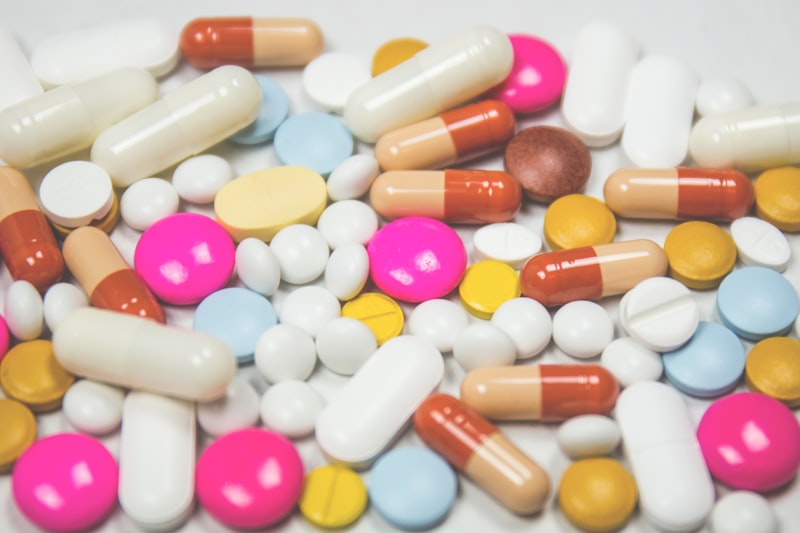Water, our primary source of hydration, serves as nature’s mouthwash. Drinking an adequate amount of water helps wash away food particles and bacteria that can linger in your mouth after eating. This simple act helps prevent plaque buildup and reduces the risk of tooth decay and gum disease.
Moreover, staying hydrated promotes the production of saliva. Saliva is more than just water; it contains essential minerals like calcium and phosphate that help remineralize tooth enamel and neutralize acids produced by bacteria. A dry mouth, often caused by dehydration, can lead to a host of oral health issues including bad breath (halitosis), cavities, and gum irritation.
Think of saliva as your mouth’s natural defense system—it not only aids in digestion but also protects your teeth and gums. When you’re adequately hydrated, saliva production increases, maintaining the balance needed to keep your mouth healthy.
Beyond water, certain beverages like herbal teas and even milk can contribute to hydration. However, be cautious with sugary drinks and acidic beverages like sodas and fruit juices, as they can erode tooth enamel over time, despite providing hydration.
In essence, maintaining proper hydration levels throughout the day is essential for your oral health. It supports saliva production, washes away debris, and helps maintain a neutral pH in your mouth—all contributing factors to a healthier smile. So, remember to sip water regularly, especially after meals, to keep your teeth and gums in top shape.
Quenching the Truth: How Hydration Impacts Your Oral Health
Ever wondered why your mouth feels dry when you’re thirsty? It’s because hydration directly affects saliva production. Saliva isn’t just water; it’s a powerhouse of enzymes and minerals that help cleanse your mouth and neutralize acids produced by bacteria. When you’re well-hydrated, saliva flow increases, aiding in the natural remineralization of tooth enamel and buffering acids that can erode teeth over time.
Hydration plays a pivotal role in maintaining healthy gums. Dehydration can lead to a decrease in saliva production, leaving your gums vulnerable to bacterial buildup and inflammation. Proper hydration supports the integrity of gum tissues, reducing the risk of gum disease and ensuring they remain pink, firm, and free from discomfort.
Did you know that drinking water can be one of the simplest ways to prevent cavities? It’s true! Water helps wash away food particles and residue that can contribute to plaque formation and eventual tooth decay. By staying hydrated throughout the day, you’re not only supporting saliva production but also minimizing the time sugars and acids from foods and drinks linger on your teeth.
Bad breath, scientifically known as halitosis, often stems from a dry mouth. When your mouth is adequately hydrated, saliva helps rinse away odor-causing bacteria, keeping your breath fresher. It’s a natural way to combat bad breath without relying solely on mints or gum.
- Consider using a fluoride mouthwash to strengthen enamel and combat cavities.
Remember, staying hydrated isn’t just beneficial for overall health—it’s a vital part of maintaining a bright, healthy smile. So, grab that water bottle and sip your way to better oral health today!
Beyond Brushing: Hydration’s Secret Role in Oral Hygiene
Have you ever wondered if there’s more to oral hygiene than just brushing and flossing? While these daily habits are crucial, there’s a secret player that often goes unnoticed: hydration. Yes, staying hydrated isn’t just good for your overall health; it plays a vital role in maintaining a healthy mouth too.
Here’s how it works: saliva, often called the mouth’s natural defense system, is primarily made up of water. When you drink an adequate amount of water throughout the day, your body can produce enough saliva to keep your mouth clean and moist. Saliva helps neutralize acids produced by bacteria in the mouth, reducing the risk of tooth decay and gum disease.
But hydration goes beyond just preventing dry mouth. A well-hydrated mouth promotes the remineralization of teeth, helping to strengthen enamel and prevent cavities. Imagine your teeth as a fortress, with saliva as the moat protecting them from invaders like plaque and bacteria. Without enough water, this defense system weakens, leaving your teeth vulnerable to decay.
Furthermore, water acts as a natural cleanser. It washes away food particles and debris, preventing them from lingering between teeth and causing plaque buildup. This means that by simply drinking enough water each day, you’re giving your teeth an extra layer of protection against oral health issues.
Incorporating hydration into your daily oral care routine is simple. Aim to drink plenty of water throughout the day, especially after meals. Not only will your body thank you for the hydration boost, but your smile will also shine brighter knowing it’s well-protected against dental woes.
This article emphasizes the importance of hydration in oral hygiene while maintaining a conversational tone and engaging the reader with analogies and practical tips.
Thirsty Teeth: Why Hydration Is Essential for a Healthy Mouth
Have you ever thought about how important water is for your teeth? It turns out, staying hydrated isn’t just good for your overall health; it’s crucial for maintaining a healthy mouth too. Let’s dive into why hydration plays such a vital role in keeping your pearly whites in top shape.
Firstly, think of your mouth as a bustling ecosystem. Throughout the day, it’s hard at work processing food, fighting off bacteria, and helping you speak and smile. But all this activity leads to a constant need for moisture. That’s where water comes in. It acts as a natural cleanser, washing away food particles and neutralizing acids that can cause tooth decay.
Imagine your teeth are like a fortress, and water is the knight in shining armor defending it from invaders. When you drink enough water, you’re helping to maintain a balance of healthy saliva production. Saliva is not just water; it’s a complex fluid that contains essential minerals like calcium and phosphate, which remineralize tooth enamel and keep it strong against acids.

But what happens when you don’t drink enough water? Well, your mouth can become a dry, parched desert. This condition, known as dry mouth or xerostomia, is more than just uncomfortable; it can increase your risk of cavities, gum disease, and bad breath. Without sufficient saliva to wash away food particles and bacteria, they can linger longer on your teeth, causing plaque buildup and potential damage.

Think of it this way: if saliva is the mouth’s superhero, water is its trusted sidekick. They work together to maintain a healthy balance and protect your teeth from harm. So, the next time you reach for a glass of water, remember you’re not just quenching your thirst; you’re also giving your teeth the care they need to stay strong and healthy.
Drink Up! The Link Between Hydration and Strong Teeth
Ever wondered how staying hydrated can impact your dental health? It turns out, proper hydration plays a crucial role in maintaining strong teeth and a healthy smile. Let’s dive into why drinking enough water is not just good for your body but also for your oral hygiene.
Your teeth are more than just white pearls in your mouth—they are living tissues that require adequate hydration to stay strong. Water helps in the production of saliva, which is your mouth’s natural defense system against tooth decay and gum disease. Saliva not only washes away food particles and bacteria but also neutralizes acids produced by bacteria in your mouth.
When you’re dehydrated, your body produces less saliva, leading to a dry mouth. This lack of saliva can increase the risk of cavities and other dental problems. By drinking enough water throughout the day, you can ensure that your saliva production remains optimal, thus protecting your teeth from decay.
But it’s not just about quantity; the quality of the water you drink matters too. Tap water, especially in areas with fluoridated water supplies, contains fluoride—a mineral that helps prevent tooth decay and strengthens tooth enamel. Fluoride works by remineralizing enamel that has been weakened by acids.
So, next time you reach for a drink, consider choosing water over sugary beverages. Not only will you be keeping yourself hydrated, but you’ll also be giving your teeth the best chance to stay strong and healthy. Remember, a well-hydrated mouth is a happy mouth!
Frequently Asked Questions
What are the signs of dehydration that can impact oral health
Learn about the signs of dehydration that can affect oral health, including dry mouth, bad breath, and an increased risk of tooth decay. Discover how staying hydrated is crucial for maintaining oral hygiene and preventing dental issues.
How does dehydration affect oral hygiene
Learn how dehydration impacts oral hygiene, causing reduced saliva production that can lead to dry mouth. This condition increases the risk of cavities, gum disease, and bad breath. Maintaining adequate hydration is crucial for saliva production and overall oral health.
How much water should I drink daily for optimal oral hygiene
Discover how much water you should drink daily to enhance your oral hygiene. Learn the optimal intake for maintaining a healthy mouth.
Can drinking water prevent common oral health issues
Discover how drinking water can help prevent common oral health issues such as tooth decay and gum disease. Learn about the benefits of hydration for maintaining oral hygiene and how it supports saliva production, which plays a crucial role in protecting teeth and gums.
Why is hydration important for oral health
Hydration is crucial for oral health because it helps maintain saliva production. Saliva plays an ultimate role in protecting teeth and gums by neutralizing acids, washing away food particles, and providing minerals that strengthen tooth enamel. Proper hydration supports these functions, reducing the risk of tooth decay, gum disease, and bad breath.


